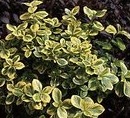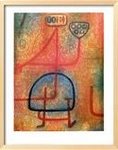I'm mentally formulating my response to the Merkin-Kipnis slatemate -- ha! what a typo! I meant to write "stalemate." Slate/stale/mate. Typo stays.
As I'm still gestating my ideas -- while I complete assorted holiday tasks with the progeny (fa la la la la) -- I give you what I plan to use as my lede: Christopher Marlowe's "The Passionate Shepherd to His Love"; and Walter Raleigh's "The Nymph's Reply to the Shepherd."
You are probably familiar with Marlowe's poem:
Come live with me and be my love,
And we will all the pleasures prove
That valleys, groves, hills, and fields
Woods or steepy mountain yields.
And we will sit upon the rocks,
Seeing the shepherds feed their flocks
By shallow rivers to whose falls
Melodious birds sing madrigals.
And I will make thee beds of roses
And a thousand fragrant posies,
A cap of flower, and a kirtle
Embroidered all with leaves of myrtle;
A gown made of the finest wool
Which from our pretty lambs we pull;
Fair lined slippers for the cold
With buckles of the purest gold;
A belt of straw and ivy buds,
With coral clasps and amber studs;
And if these pleasures may thee move,
Come live with me and be my love.
The shepherds' swains shall dance and sing
For thy delight each May morning:
If these delights thy mind may move,
Then live with me and be my love.
But here is Raleigh's "The Nymph's Reply," as well:
If all the world and love were young,
And truth in every shepherd's tongue,
These pretty pleasures might me move
To live with thee and be thy love.
Time drives the flocks from field to fold,
When rivers rage and rocks grow cold;
And Philomel becometh dumb;
The rest complain of cares to come.
The flowers do fade, and wanton fields
To wayward winter reckoning yields;
A honey tongue, a heart of gall,
Is fancy's spring, but sorrow's fall.
Thy gowns, thy shoes, thy bed of roses,
Thy cap, thy kirtle, and thy posies,
Soon break, soon wither, soon forgotten,
In folly ripe, in reason rotten.
Thy belt of straw and ivy buds,
Thy coral clasps and amber studs,
All these in me no means can move
To come to thee and be thy love.
But could youth last and love still breed,
Had joys no date nor age no need,
Then these delights my mind might move
To live with thee and be thy love.
I know you're thinking: what do two sixteenth-century poems have to do with Daphne Merkin's pique at Laura Kipnis' having designated her as "bratty"?
On first read, Marlowe's pastoral ditty seems benign, even endearing (it's meant to). As Raleigh's "reply" shows, though, the poems are about language and persuasion, register and context: the issues at the core of the Merkin-Kipnis debate.
I'll explain shortly. After I cut some more snowflakes (out of my dissertation, of course).
Saturday, December 09, 2006
Renaissance Reconnaissance (aka homework)
Subscribe to:
Post Comments (Atom)



No comments:
Post a Comment